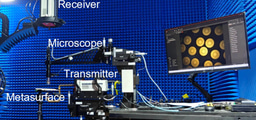
As researchers have long known, the punishing conditions associated with human spaceflight present profound challenges for the mental and physical health of astronauts. Acceleration during launch, (which must rapidly propel the craft to some 18,000 mph), acute confinement, hazardous levels of radiation, sleep deprivation, and reduced gravity (or microgravity) can produce a range of physiological effects, from suppressed immune function, bone and muscle loss, eyesight problems, and viral reactivation to anxiety and depression.
In a first of its kind study, Cheryl Nickerson and her colleagues at the Biodesign Institute have demonstrated that the spaceflight environment can also produce alterations in gene expression in human blood that may leave space travelers more susceptible to a range of diseases. These changes were detected in blood samples taken from astronauts before and after spaceflight missions.
Read full article at Biodesign news:
https://biodesign.asu.edu/news/effects-spaceflight...
Link to the paper in npj Microgravity:





Please sign in or register for FREE
If you are a registered user on Research Communities by Springer Nature, please sign in